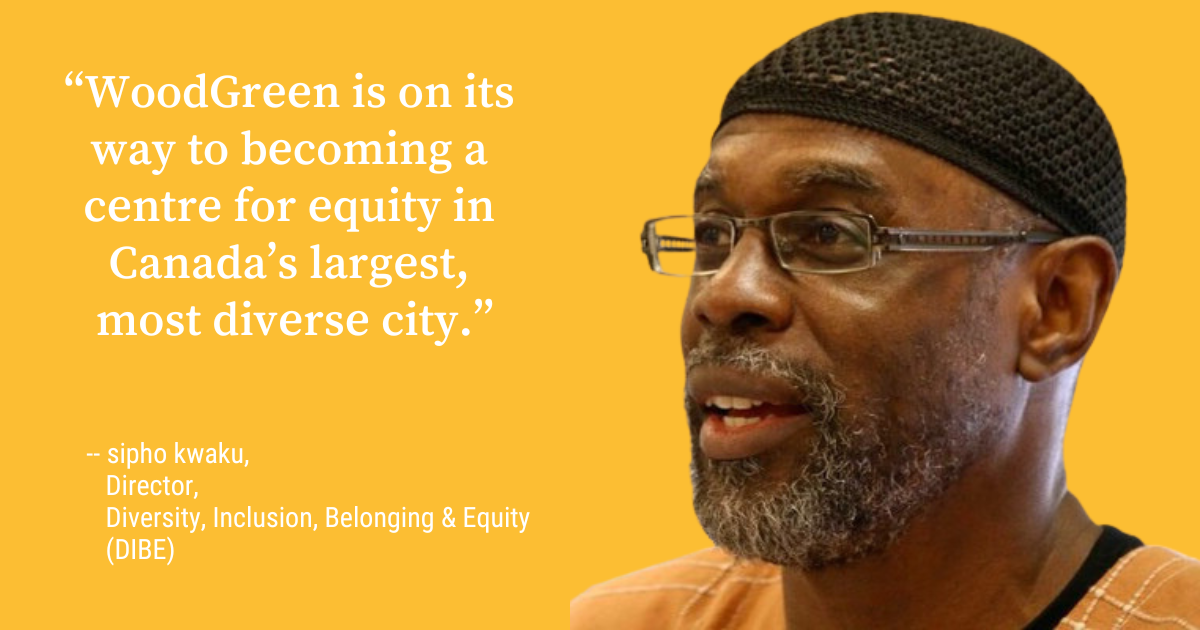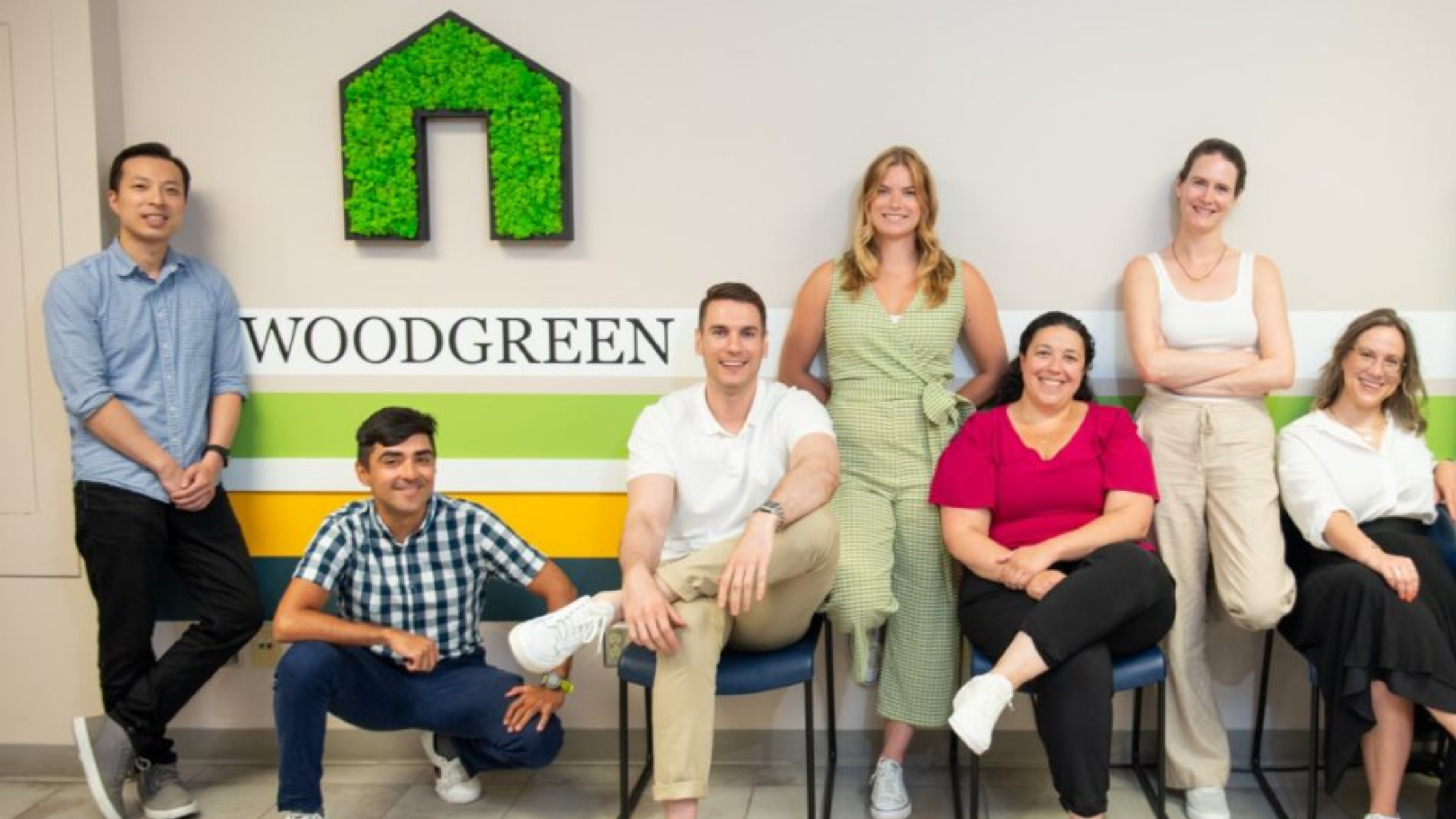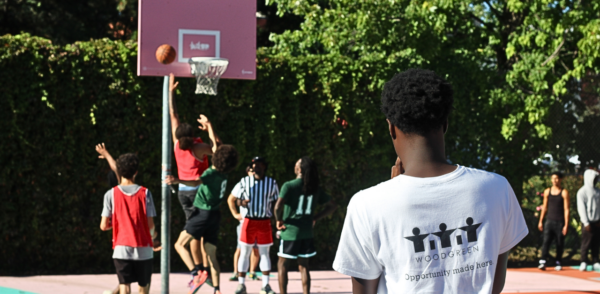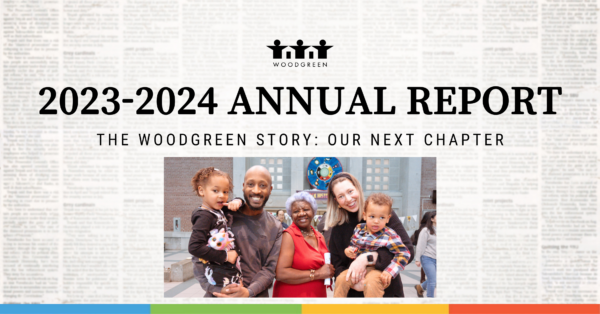It’s not enough to just talk about the importance of diversity or say that equity is vital. Showing you’re willing to have hard conversations and make difficult changes is what counts. That’s according to sipho kwaku, Director of Diversity, Inclusion, Belonging & Equity (DIBE) at WoodGreen Community Services.
“Equity is a journey that we all need to embrace,” says kwaku, who is not only laying the roadmap for that journey but leading the way forward. There will be many stopovers on the way and kwaku explains that WoodGreen has already mapped the first three as priorities for 2023-2034.
WoodGreen’s strategic plan explains why diversity is vital to the organization’s future: “Creating a Toronto where everyone has the opportunity to thrive requires us to proactively address race inequities both internally and externally. As a leader in the community sector, we have a responsibility to model what it means to be an equity-centred organization.”
Read WoodGreen’s Equity Statement
WoodGreen takes a look in the mirror
Last year, WoodGreen looked at its own culture regarding employees and the communities they serve. There are more than 850 staff at an organization that is more than 85 years old and was created when Toronto’s population was very different from today.
The survey was designed to give WoodGreen a baseline for representation in categories including gender, sexual orientation, age, religion, race, and disability in all areas and aspects of the organization. This survey, says kwaku, was essential to tracking the success of future DIBE efforts. DIBE’s goal is to help dismantle current structural barriers so that all staff and service users have access to achieve their full potential and have the opportunity to thrive.

When asked how awareness of racism and equity issues could be promoted at WoodGreen, staff asked for training to better understand the root cause of inequity in the workplace and the community.
So that has become the next stopover on WoodGreen’s journey to equity.
Providing staff with Diversity Training Modules
The DIBE committee, which kwaku oversees and consists of WoodGreen staff, began rolling out its training modules this month. Divided into three components, the training is designed to establish a deep understanding of the issues surrounding inequity in Canada.
What the training isn’t is easy.
“Safety is non-negotiable but comfort isn’t,” says kwaku, explaining that the first module focuses on creating a safe environment to speak openly about difficult issues without fear of judgment or repercussions. Participants need to be prepared to learn and be challenged in a respectful way.
The next step is figuring out what equity is and what it isn’t. To this end, WoodGreen established a defined Equity Statement. Broadly summarized it states: Diversity is a fact, Inclusion is an action, Equity is a choice and Belonging is an outcome.

“This equity lens, it's a filter that really helps us as an organization when we need to make a decision,” says kwaku. “I call it a set of equity glasses that we always need to put on so we see the clear path to an equitable choice.”
The third training module concerns itself with the notion of white supremacist structures. kwaku admits this piece is perhaps the most difficult part of the program.
“But we need to talk about it,” he says, “and we start by saying this is not about you. This is about the system we all live and work in.”
Ensuring diversity in external vendors
In addition to the internal survey and the training modules, WoodGreen is also actively examining how it procures services at all levels of the organization.
“Who are our vendors? Is our vendor pool diversified?” asks kwaku. He says WoodGreen is working with a base understanding of who the organization uses as vendors and who, in terms of equity, might be missing from the table.
DIBE Committee plans upcoming equity forum
A major destination on this journey for both WoodGreen and kwaku is hosting an Equity Forum in May of 2024. The idea, says kwaku, is to gather community-based organizations who are doing similar work in Toronto and establish how to best serve an increasingly diverse population in the GTA.
“WoodGreen is on its way to becoming a centre for equity in Canada’s largest, most diverse city,” says kwaku.
The motivation for kwaku is both professional and personal.
“I believe that equity lives,” he says, with a strong tone of conviction. “I see richness all around us coming from different places. I would very much like us all to embrace and harness the richness. Because there is magic there.”
Truth and Reconciliation are an important part of the DIBE committee’s work.
Read WoodGreen’s Land Acknowledgment.




